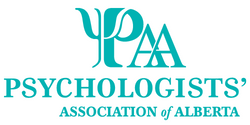
Negative Thinking in Depression: Critical Concepts and Interventions – 6 CE-Credit
Abstract:
One of the most challenging aspects of CBT is the ability to recognize, name and work effectively to modify dysfunctional thoughts and underlying core beliefs that lead to problems for the client. In this workshop several key strategies to identify negative thoughts and core beliefs that commonly occur in depression will be reviewed and demonstrated. The three main methods of evidence- based, alternative- based and meaning- based strategies will be distinguished and presented. The key strategy of assessing the client’s desire for belief change will be discussed, and the ethics of belief modification will be also reviewed, before several effective strategies for belief modification are described and presented
Relevant Background
CBT for depression has had a major focus on the assessment and modification of dysfunctional thinking. This workshop presents a conceptual framework to think about these forms of thinking, and the most commonly deployed ways to assess and intervene. The workshop is best suited for people with some background in CBT, and who ideally practice with depressed clients.
Learning Objectives
- Identify negative cognitive patterns associated with Major Depression
- Use cognitive case conceptualization to identify cognitive targets for change
- Understand the three major types of interventions for negative cognitions in depression.
- Recognize the major strategies for core belief work in depression.
Training Modalities
The workshop will use a combination of didactic information, video demonstrations and live exercises to have attendees learn about several strategies to work with negative thinking and core beliefs in the context of CBT.
Presenter

Dr. Keith Dobson
Dr. Dobson is a Professor Emeritus of Clinical Psychology at the University of Calgary. His research has focused on both models and the treatment of depression, particularly using cognitive-behavioural therapies. Dr. Dobson’s research has resulted in over 400 published articles and chapters, 17 books, and conference and workshop presentations in many countries. His recent books include the Handbook of Cognitive-behavioral Therapies, 4th Edition (2019) and The Stigma of Mental Illness (2021). In recognition of his work he has received numerous awards, including Fellow status in the Academy of Cognitive- behavioral Therapy, the Canadian Academy of Health Sciences and the Royal Society of Canada. He is an Officer of the Order of Canada.
Continuing Education Credits
The Psychologists’ Association of Alberta (PAA) is approved by the Canadian Psychological Association (CPA) to offer Continuing Education (CE) for psychologists. This workshop is offered for one and a half (1.5) hours of CE Credit. Full attendance at the workshop is required to receive Continuing Education Credits. Partial credit will not be awarded, and late arrivals or early departure will preclude awarding of Continuing Education Credits. PAA maintains responsibility for the program.
Cancellation and Refunds
Cancellation and refunds may be applied for by email or phone call to the PAA. Cancellations received fourteen (14) days prior to the Continuing Professional Development activity will receive a full refund of the registration fee, less a $35.00 + GST processing fee. PAA reserves the right to cancel any activity, in which case a full refund of the registration fee will be provided.
References:
Beck, J. (2021). Cognitive Behavior Therapy: Basics and Beyond, 3rd Edition. New York, NY: Guilford Press.
Dobson, K. S. (2024). Clinical depression: An individualized biopsychosocial approach to assessment and treatment. Washington, DC: American Psychological Association Press.
Dobson, D. J. G., & Dobson, K. S. (2017). Evidence-based Practice of cognitive behavior therapy, 2nd edition. New York, NY: Guilford Press.
Kazantzis, N. Dattilio, F. M., & Dobson, K. S. (2017). The therapeutic relationship in cognitive behavior therapy: The Heart and Soul of Effective Practice. New York, NY: Guilford Press.
Details
- Date:
- March 7
- Time:
-
9:00 am - 4:00 pm MST
- Cost:
- $450.00
Venue
- Edmonton
- Edmonton, Alberta Canada
